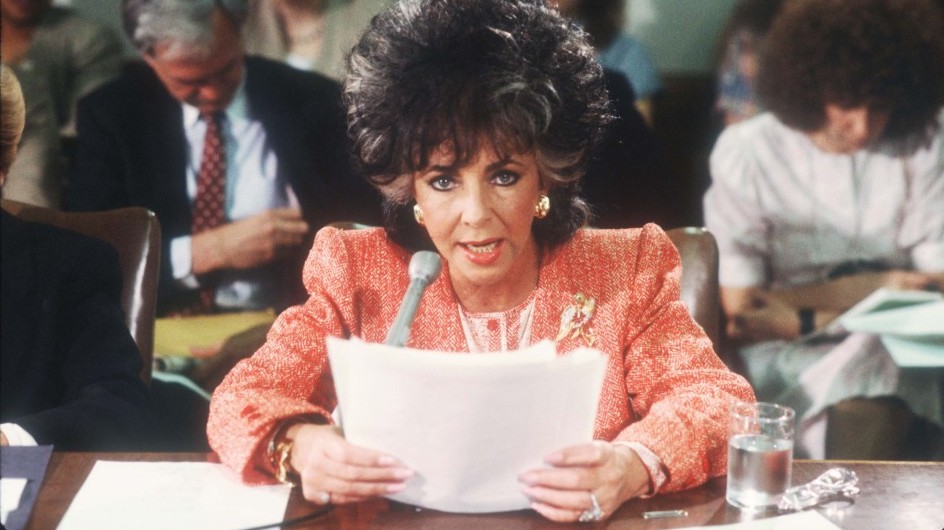
Elizabeth Taylor’s Commitment to Humanity
Happy Pride Month from House of Taylor! As we celebrate the LGBTQIA+ community this June, we are reflecting on Elizabeth Taylor’s allyship and above all, her commitment to honoring the humanity in each of us. At a time rife with stigma and judgment, Elizabeth persisted in showing respect, care, and support for the community, while reminding us all of the fact that at the end of the day, what matters is that we are all human.
Elizabeth believed in treating others with compassion, regardless of sexuality or identity. As she powerfully stated when accepting the GLAAD Vanguard Award in 2000: “There is no gay agenda; it’s a human agenda.” She recognized that we all share the same fundamental needs—for love, safety, and acceptance. As the first globally recognized celebrity HIV/AIDS activist, she used her platform to challenge society’s unjust response to the crisis. Her voice became a beacon of support for the gay community, who had been unfairly stigmatized during this time for their perceived association with the epidemic.
Elizabeth's style of advocacy focused on having compassion for and recognizing the inherent value in every human, no matter our differences. She steered clear of condemnation in favor of conversation, choosing to meet people where they were, with no judgment. However, that doesn’t mean that she was going to keep quiet in the face of injustice. For example, Elizabeth openly criticized Presidents Ronald Reagan, Bill Clinton, and George H.W. Bush for their refusal to address AIDS, and their disinterest in combating the problem. Ultimately, speaking her mind influenced all three. After she recruited him to speak at an amFAR fundraiser, President Reagan publicly acknowledged the epidemic, calling the disease by name when he had previously avoided doing so. President Clinton went on to establish the White House Office on National AIDS Policy and appointed the first Global AIDS Czar, and President George W. Bush later initiated PEPFAR, a government initiative aimed at combating the HIV/AIDS epidemic worldwide. Though she was outspoken about her disappointment in their initial lack of attention to the issue, she always remained gracious and friendly in her personal interactions. When Elizabeth visited the White House during President George W. Bush’s first term before receiving her Kennedy Center Honor, she encountered Former President Bush Sr. and First Lady Barbara Bush, who she knew from her time married to Republican Senator John Warner. What could have been an awkward and uncomfortable interaction remained positive due to Elizabeth's outlook, and the couple was excited to spend time with a woman they admired.
Elizabeth’s commitment to recognizing the humanity of those affected by HIV/AIDS was also illustrated in her early and persistent efforts on behalf of the Ryan White CARE (Comprehensive AIDS Resources Emergency) Act, which aimed to increase funding for AIDS emergency care in areas hardest hit by the epidemic. In 1986, she testified before the Senate Labor, Health and Human Services, Education Appropriations Subcommittee, and returned in 1990 to testify alongside Ryan White’s mother, Jeanne White, and urge passage of the act. The legislation passed later that summer. In 1992, Elizabeth once again traveled to DC to fight for the bill, this time powerfully advocating for lawmakers to allocate funds promised to the act. Four years later, she returned to Washington to participate in the Candlelight AIDS March, showing public support for a cause to which she was deeply committed.
Elizabeth’s commitment to recognizing and honoring the humanity in each and every one of us, regardless of our differences, set her apart as a true ally and a powerful advocate. Through her unwavering dedication to addressing stigma around HIV/AIDS and uplifting the LGBTQIA+ community, she stood in solidarity and helped bring about life-saving change.